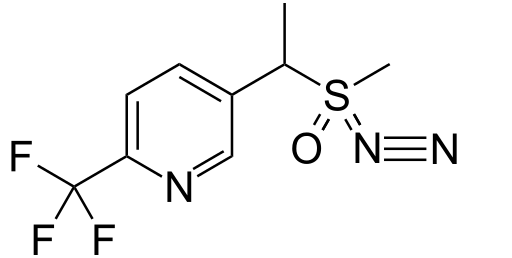Neonicotinoid insecticides are the most used insecticide worldwide and have been linked to the decline of pollinator insects. In 2018, the European Union banned the outdoor use of three neonicotinoid insecticides: clothianidin, imidacloprid, and thiamethoxam. A new sulfoximine-based insecticide, called sulfoxaflor, is coming to market worldwide as a neonicotinoid replacement. Sulfoxaflor acts on the central nervous system of insects, just as neonicotinoids do, and, surprisingly (or not), it has similar harmful effects on wild bumble bees, researchers reported in Nature (August 2018). See also: Die-off of bees; Hymenoptera; Insecta; Insecticide; Neonicotinoid insecticides banned in Europe; Pesticide; Pollination

In 2016, M. J. F. Brown and coworkers raised concerns over the replacement of neonicotinoids with sulfoxaflor, because neonicotinoids have sub-lethal effects on pollinators in terms of colony growth and reproduction. At that time, sulfoxaflor had not been tested for sub-lethal effects. In the bumble-bee study, colonies that were fed an equivalent concentration of sulfoxaflor (five parts per billion) as found in the nectar of plants sprayed with sulfoxaflor produced fewer male and female bees than control colonies and no queens, compared to 36 new queens for the controls. However, the mechanism by which sulfoxaflor affected colony growth was not determined. As a result, the researchers recommend further scientific assessment before replacing neonicotinoids with sulfoximines. See also: Environmental toxicology; Population ecology
While pesticides were originally seen as one of the solutions for increasing crop production, it has become clear that they pose a threat to pollinating insects and perhaps other wildlife. Pest control in agriculture is necessary, at times. The agrochemical industry, which generates billions of dollars of profits from pesticides, argues that chemical control is more economical. An economic-only assessment neglects society and the environment, and has resulted in unsustainable decisions. According to a report in Nature Plants, insecticide use may not be an all-or-nothing problem, as the researchers found that low levels of pesticide use most often did not decrease farming productivity or profitability, suggesting that finding a safer and practical balance is possible. See also: Agricultural chemistry; Agricultural science (animal); Agricultural science (plant); Agriculture





